Introduction
The landscape of workplace health has evolved significantly, with organizations recognizing the importance of employee well-being as a critical aspect of their business strategy. This shift is not just driven by benevolence, but also by the bottom line. Investing in well-being programs has been shown to yield a return of $4 to $6 for every dollar spent, thanks to increased productivity and lower expenses.
Embracing a culture of well-being goes beyond buzzwords; it involves prioritizing the symbiosis of physical, mental, emotional, and social health through open communication. As the US invests billions in employee wellness, it's important to note that the most effective interventions are those that provide opportunities for employees to engage in charity or volunteer work. With adults spending most of their waking hours at work, employers have a prime opportunity to positively influence their employees' holistic health.
By embracing a comprehensive view of health, organizations can not only add years to life but also life to years.
Why Corporate Wellness is Crucial for Modern Workplaces
The landscape of workplace health has shifted dramatically, with a Deloitte report indicating that 80% of organizations now view employee well-being as a critical component of their business strategy. In fact, 61% are planning to ramp up investments in well-being programs. This isn't merely about benevolence; it's about the bottom line.
The World Health Organization suggests a return of $4 to $6 for every dollar spent on these programs, thanks to enhanced productivity and lower expenses, with mental health improvements being a pivotal growth factor.
Embracing a culture of well-being translates into a work environment where satisfaction and value aren't just buzzwords—they are embedded in the company ethos. It's a holistic approach, acknowledging the symbiosis of physical, mental, emotional, and social health, and it's built on the bedrock of open, stigma-free communication.
Prioritizing work-life balance, these cultures don't sacrifice productivity; they bolster it, creating high-quality human hours. With data supporting the productivity boosts, it's clear that employee well-being isn't just about feeling good; it's about performing well. Stigma around mental health, highlighted by a WHO survey showing 35% of people view those with mental disorders as dangerous, is actively combated in well-being cultures, which offer resources for developing coping skills and sustaining healthy lifestyles.
These efforts are reflected in spending, with the US investing $51 billion in 2020 on employee wellness—a number that could double by 2030. And while the introduction of mental health services and digital wellness solutions is commendable, it's interesting to note a study in the Industrial Relations Journal found that the most effective intervention was the opportunity for employees to engage in charity or volunteer work, rather than the multitude of available apps or seminars.
Ultimately, considering that most adults spend the majority of their waking hours at work, employers have a prime opportunity to positively influence their employees' holistic health. As highlighted by the McKinsey Health Institute and the WHO, embracing a comprehensive view of health is essential for adding not just years to life but also life to years.
Key Components of a Successful Corporate Wellness Program
When constructing a corporate wellness initiative, it is essential to adopt a holistic approach that addresses the various aspects of an employee's well-being. Begin by incorporating comprehensive health assessments that evaluate both physical and mental health, recognizing that these elements are intertwined. Offer personalized wellness plans that consider individual needs, as underscored by the London School of Economics and Political Science, which found that employee well-being boosts productivity and loyalty.
Fitness is another critical component, and today's employees expect more than just a gym pass. As Carvalho explains, wellness now extends to digital fitness and partnerships in mental health, mindfulness, nutrition, and sleep improvement. Access to diverse resources, both physical and digital, caters to the evolving wellness landscape.
Mental health support has become an indispensable part of wellness programs. In light of the billion-dollar industry it represents, provide a variety of mental health services such as coaching, mindfulness seminars, and resilience workshops. It's important to note, however, that the effectiveness of these programs depends on being part of a healthy workplace culture.
Incentives and rewards for participation can further engage employees. However, recent research from the Industrial Relations Journal suggests that while traditional wellness programs may not significantly improve well-being, opportunities for charity or volunteer work do have a positive impact. This points to the importance of meaningful engagement in wellness initiatives.
The McKinsey Health Institute advocates for a broader definition of health that includes mental, physical, spiritual, and social dimensions. By addressing these areas, employers can significantly contribute to their employees' overall quality of life. Remember, the goal is not just to offer tools but to foster a culture that supports holistic wellbeing.
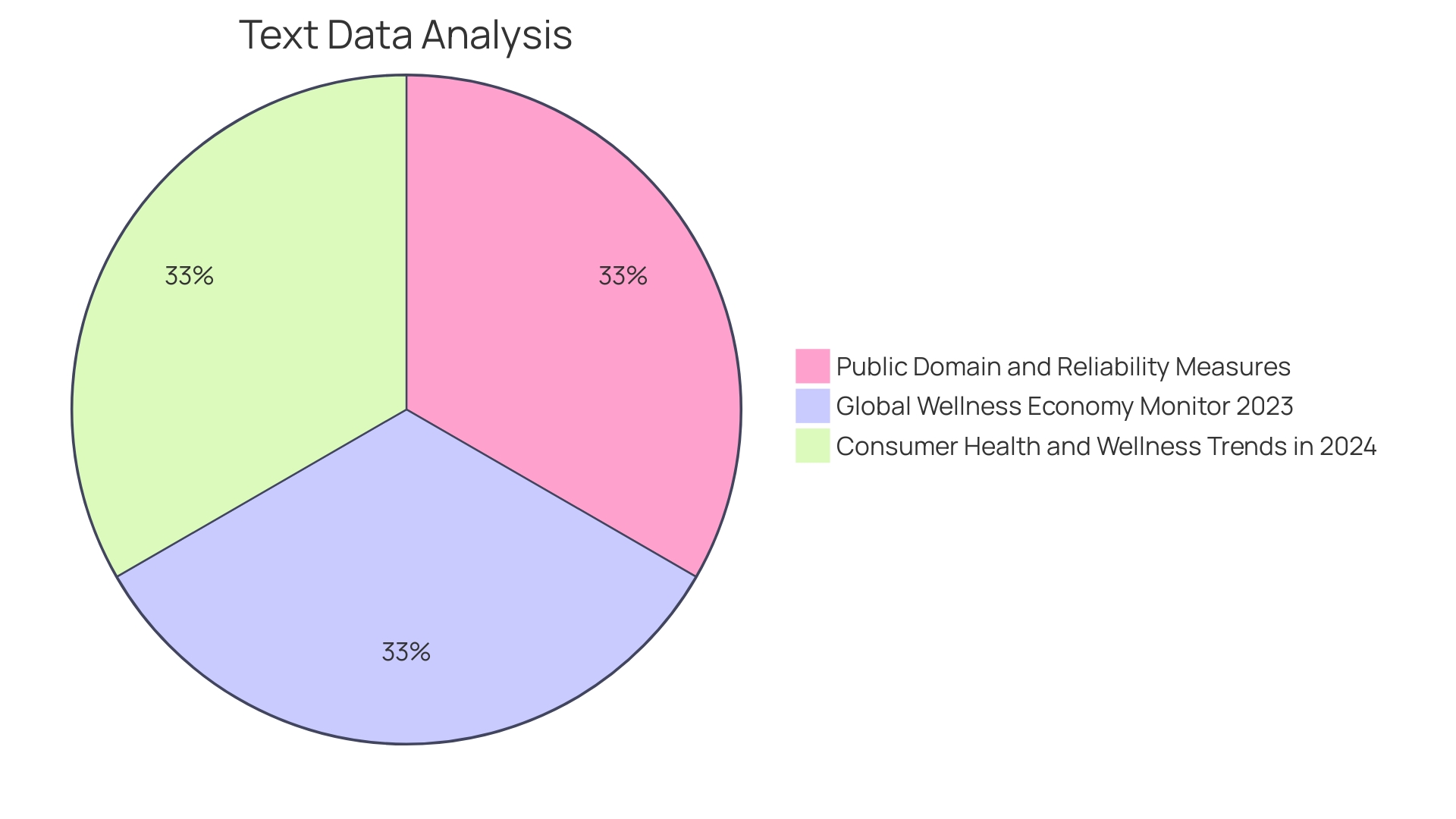
How Technology is Shaping Corporate Wellness
Embracing the synergy of technology and employee wellness, corporate programs are reaching new heights of efficacy and user engagement. Wearables and mobile apps are at the forefront of this revolution, meticulously tracking health metrics and sleep patterns, while virtual coaching and wellness resources are accessible with just a tap. Such digital tools not only personalize health initiatives but also make them more engaging and readily available to the workforce.
Case studies from industry leaders demonstrate the positive correlation between employee happiness and company performance. For example, Happiness Planet's app, "Happiness Planet Gym," fosters well-being by cultivating positive interpersonal connections within organizations. ANA Group's adoption of this service reflects their commitment to employee happiness, which in turn drives value creation and productivity.
In the midst of a work landscape transformation, where remote and diverse workforces become the norm, it's crucial to integrate AI to holistically address physical, mental, and emotional wellness. Ai's predictive capabilities allow for personalized health plans, catering to the individual needs of a diverse workforce and fostering an inclusive environment. As noted by experts, such as Dr. David Covall, healthcare technology is pivotal in enhancing life quality over time, with a focus on outcomes beyond medical procedures.
The economic impact of employee disengagement, which costs U.S. companies billions annually, emphasizes the need for comprehensive well-being programs. A staggering $51 billion was invested in employee wellness in 2020, a figure set to double, highlighting the urgency for solutions that encompass the totality of employee health. As technology evolves, so does the opportunity for companies to innovate in the realm of corporate wellness, ensuring a happier, healthier, and more productive workforce.
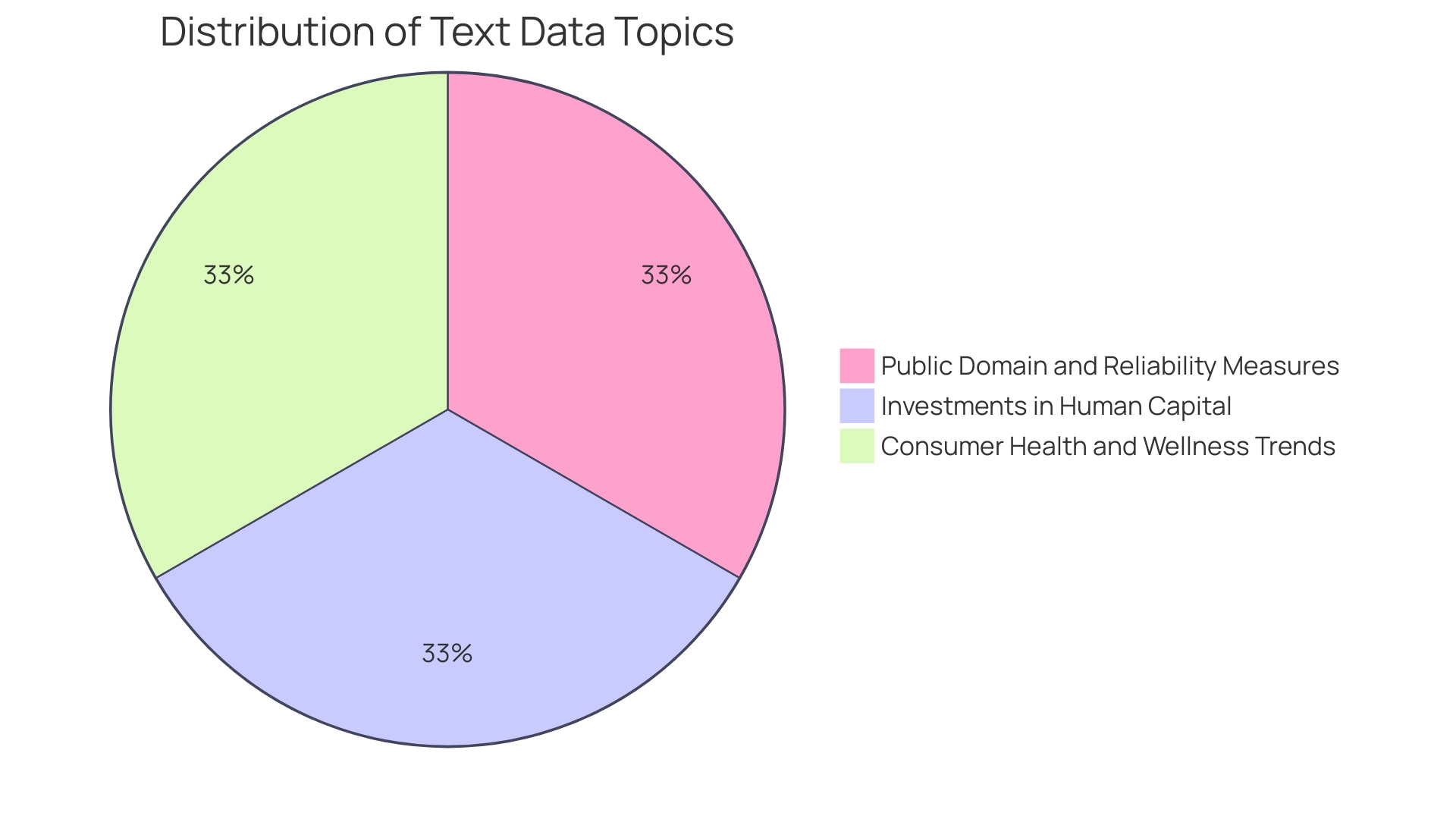
Top Corporate Wellness Companies in 2024
With the wellness industry rapidly transforming, certain pioneers are setting the benchmark for innovative and comprehensive wellness initiatives. These trendsetting corporate wellness companies are expanding their offerings beyond traditional fitness solutions to encompass mental health, mindfulness, nutrition, and sleep improvement, reshaping the way we perceive workplace well-being.
The modern workplace presents a unique opportunity for employers to influence the holistic health of their workforce. Organizations like the McKinsey Health Institute and the World Health Organization advocate for a broader understanding of health that integrates mental, physical, spiritual, and social dimensions. This holistic approach aligns with the philosophy of leading wellness companies, striving to add not just years to life, but more importantly, life to years.
Recent developments in the wellness space highlight consumer-driven growth, with an emphasis on areas historically underserved, such as women's health. Technological advancements and product innovation are meeting the demand for wellness-focused real estate and health technologies, including wearable devices for women's health and services that foster healthy aging and longevity. The Global Wellness Institute projects an impressive annual growth rate in the wellness sector, outpacing global GDP growth, which signals a significant shift towards prevention and well-being.
These emerging trends underscore the importance of investing in employee wellness, with the understanding that such investment not only fosters a healthier workforce but also contributes to better business outcomes. With the growing prioritization of wellness among consumers, especially the younger generations, and the recognition of the crucial role that employers play in supporting healthy lifestyles, these top wellness companies are poised to lead the charge in creating a healthier, more productive, and engaged workforce in 2024 and beyond.
Corporate Health Partners (CHP)
Wellness companies like Corporate Health Partners (CHP) are redefining the landscape of employee health by offering a diverse array of services that cater to both the physical and mental well-being of workers. These services range from comprehensive health assessments that provide a baseline of an individual's health status to personalized coaching that offers tailored advice and support for personal health goals. Additionally, CHP provides engaging fitness programs designed to motivate and encourage physical activity, as well as mental health support that addresses the growing need for emotional well-being in the workplace.
The impact of these wellness services is not just felt on an individual level but also resonates through the entire organization, fostering a culture of health that can lead to improved productivity and engagement. By adopting an evidence-based approach, CHP ensures that the wellness solutions they implement are grounded in scientific research and best practices, maximizing the potential for positive health outcomes.
This commitment to employee well-being is echoed in the broader healthcare industry as companies like Personify Health strive to personalize health experiences. By using data-driven personalization and concierge-level clinical services, these companies are proactively responding to the unique health needs of individuals, breaking down the one-size-fits-all mentality that often hinders the effectiveness of traditional healthcare models.
The integration of digital health technologies, such as AI-powered programs, further enhances the reach and efficiency of these wellness services. These technologies enable patients and clinicians to connect remotely, offering convenience and timely support that can fit seamlessly into a person's life. Real-time behavioral data from these programs offer insights into when individuals are most likely to seek support, allowing for more targeted and effective interventions.
As the corporate world continues to evolve, the role of wellness companies becomes increasingly vital in creating a supportive and health-focused work environment. The innovative approaches employed by these companies, including those highlighted by Sonic Boom Wellness, demonstrate the importance of engaging and enjoyable wellness programs that truly resonate with employees, leading to a more vibrant, healthy, and productive workforce.
Wellness360
Wellness360 has garnered recognition for its all-encompassing approach to enhancing workplace health, targeting not just the physical but also the mental and emotional well-being of employees. By incorporating fitness challenges that invigorate the body, stress management workshops that soothe the mind, and education on nutrition that nourishes, they offer a robust support system. Moreover, their employee assistance programs are a testament to their commitment to fostering a nurturing work environment.
This multifaceted strategy is reflective of a growing understanding that wellness is personal and varied, as underscored by the collaboration between the Garden and Wellmark, where individual needs and preferences were considered to tailor a successful wellness initiative. In the current landscape, where 60% of employees prioritize well-being benefits in job considerations, such comprehensive programs are not just beneficial, they're essential for attracting and retaining top talent. This trend is supported by research from the London School of Economics and Political Science, which found that employee well-being is directly linked to increased productivity and loyalty to an employer, ultimately impacting the company's financial health.
Wellness360's evolution mirrors the industry's shift to a more holistic health model, acknowledging that a one-size-fits-all approach is no longer sufficient. As companies invest more in their employees' wellness, initiatives like those from Wellness360 are paving the way for a healthier, happier, and more engaged workforce.
Wellable
Wellable's platform exemplifies the modern blend of technology and personalized wellness, transforming how organizations promote employee health. This innovative approach includes tracking engagement and measuring the impact of wellness programs. By personalizing interventions, Wellable caters to the unique needs of each employee, fostering a culture of well-being that resonates with the diverse demands of today's workforce.
The significance of such tailored wellness initiatives is backed by research from the London School of Economics and Political Science, which reveals that employee well-being is closely linked to productivity and retention, affecting an organization's financial health. Furthermore, as the workforce evolves with expectations of well-being benefits, companies like Wellable rise to the occasion. With offerings that extend beyond physical fitness to mental health, mindfulness, nutrition, and sleep, they address the holistic nature of well-being.
In light of the shifting work landscape, such as the integration of remote work and the entrance of a diverse, multi-generational workforce, it's imperative for organizations to adopt a broad spectrum of health strategies. A Gallup poll highlights a costly gap in engagement, with disengaged employees leading to substantial productivity losses. AI-powered solutions like Wellable’s can help bridge this gap, tailoring wellness to meet the vast array of employee needs.
Employers are recognizing the importance of supporting not just the physical health of their employees but also their mental and emotional well-being. XRHealth's Virtual Reality Therapy, for example, is a testament to the innovative directions that workplace wellness is exploring, offering accessible tools for improving health from the comfort of one's home.
Ultimately, the success of wellness programs hinges on their ability to resonate with employees' unique needs. As we navigate the nuances of the modern workplace, platforms like Wellable are poised to lead the charge in cultivating environments where well-being and productivity flourish in unison.
Virgin Pulse
Virgin Pulse, a leader in digital health and well-being, provides a comprehensive platform to encourage healthy habits and foster employee engagement. Embracing a variety of wellness resources, it features fitness challenges, habit-forming programs, and mental health support, all designed to enhance social connections among employees. The merger with HealthComp propels Virgin Pulse to new heights, introducing an integrated health platform-as-a-service that blends technology, data, and expert services.
This innovation aims to curtail healthcare costs while improving outcomes, boasting potential savings and a high-engagement member experience.
The importance of employee well-being is underscored by the discovery that workplace feelings significantly influence it. A positive organizational culture and fair management are key drivers. Virgin Pulse's commitment to diversity and inclusion is exemplified by its partnership with Made by Dyslexia, highlighting 'Dyslexic Thinking' as a valuable workplace skill.
Such initiatives align with the belief that prioritizing employee happiness enhances productivity, a notion supported by studies indicating that companies with content employees outperform their competitors by 20%.
Creating effective engagement programs involves listening to employees and understanding their needs. Virgin Pulse exemplifies this by offering personalized health solutions that cater to diverse employee needs, thus promoting better health decisions and usage of benefits. These efforts contribute to a positive brand image, fair and inclusive corporate culture, and high employee and customer satisfaction.
ComPsych Corporation
ComPsych Corporation delivers a suite of services designed to bolster the mental health and overall well-being of employees. Their offerings encompass counseling for emotional health, tools to master stress, and initiatives to enhance work-life equilibrium, enabling individuals to confront both personal adversities and vocational obstacles.
Employee assistance programs (EAPs), such as those provided by ComPsych, are integral in helping staff address a myriad of issues, from mental health conditions like depression and anxiety to physical wellness through programs that support smoking cessation and weight loss. Moreover, EAPs extend their reach to aid with familial and relational matters, which can include navigating the complexities of divorce, adoption, or caregiving.
The landscape of workplace health solutions is evolving, propelled by the heightened focus on mental health that has emerged from the COVID-19 pandemic and its associated shifts in living and working environments. In particular, the burgeoning community in regions like North Texas has seen an increase in demand for mental health resources, spotlighting the critical role of EAPs in fostering employee wellbeing.
Despite their traditional role as the initial point of contact for employee support, EAPs are facing challenges such as low utilization rates and limited care options. Consequently, organizations are seeking to enhance or even replace their EAPs with more robust alternatives that more comprehensively meet their employees' needs.
When it comes to mental health in the workplace, it's essential to recognize the widespread impact of conditions such as bipolar disorder—sometimes referred to as the "CEO disease" due to its prevalence among high-level professionals. Effective management of such conditions is possible through tailored medication, therapy, and consistent routines, underscoring the importance of well-structured EAPs that can support these needs.
For businesses looking to implement or revamp an EAP, it's crucial to start by assessing the specific requirements of their workforce and to conduct thorough research on potential EAP providers. A data-driven approach to evaluating current programs and setting strategic priorities for mental health can lead to a significant, measurable impact on employee wellness.
As we look to the health care trends of 2024 and beyond, the commitment of employers to provide comprehensive health insurance and support systems like EAPs remains a vital component of workplace health. Organizations like Apex Benefits, recognized for their efforts in addressing mental health and substance abuse issues among legal industry professionals, exemplify the importance of prioritizing employee assistance and ending the stigma associated with seeking help.
Wellsource, Inc
Wellsource, Inc. has harnessed the power of data to revolutionize workplace wellness. Their comprehensive wellness assessments and personalized health risk reports enable organizations to pinpoint health trends, customize interventions, and measure the effectiveness of wellness initiatives on employee health. At a time when 80% of organizations acknowledge employee well-being as a critical aspect of business strategy, and with a forecasted increase in investment, Wellsource's approach aligns perfectly with the trend towards data-informed health strategies.
The economic rationale is sound; the WHO suggests a $4-6 ROI for each dollar spent on well-being due to enhanced productivity and lower costs, underpinned by improved mental health at work. Wellsource's offerings empower a culture of well-being that emphasizes holistic health, open communication, and work-life balance, all of which are shown to improve the quality of work hours and overall human performance. This modern approach to health is validated by cases like Enterprise Health, which is innovating with AI to enhance occupational health services, demonstrating that integrating technology and health can lead to healthier, more engaged workforces.
FitMind LLC
At the forefront of enhancing workplace mental resilience, FitMind LLC offers a suite of mental wellness programs tailored to address the psychological needs of modern employees. Their robust offerings include mindfulness training, meditation sessions, and cognitive fitness exercises, all designed to equip staff with the tools necessary to navigate stress, sharpen focus, and elevate their mental health.
The imperative to support employee mental health has never been more pressing, with mental health issues now recognized as the most prevalent form of workplace injury, comprising 52% of cases according to a recent Atticus study. FitMind LLC's programs align with the strategic priority of fostering a culture of wellbeing, acknowledging that mental health is a spectrum ranging from everyday stresses to more serious impairments that can affect performance both at work and at home.
Embracing a data-driven approach, FitMind LLC's programs can be integrated into an organization's existing wellness strategy, providing measurable impacts that resonate with the Deloitte report's findings: a dollar invested in wellbeing programs can yield a $4 to $6 ROI. This transformative paradigm underscores the critical link between employee wellbeing and organizational success, a point underscored by the 2023 Voice of the Workplace Report's insights from over 4,000 employees and 150 US HR/benefits leaders.
Furthermore, with the rise of AI and technological advancements contributing to an 'always-on' work culture, it is pivotal for employers to clearly communicate the benefits of such innovations while also ensuring that managerial relationships support mental health through workload adjustments, breaks, and open conversations. FitMind LLC's programs can serve as an integral part of this support system, helping employees to thrive in a rapidly evolving work environment.
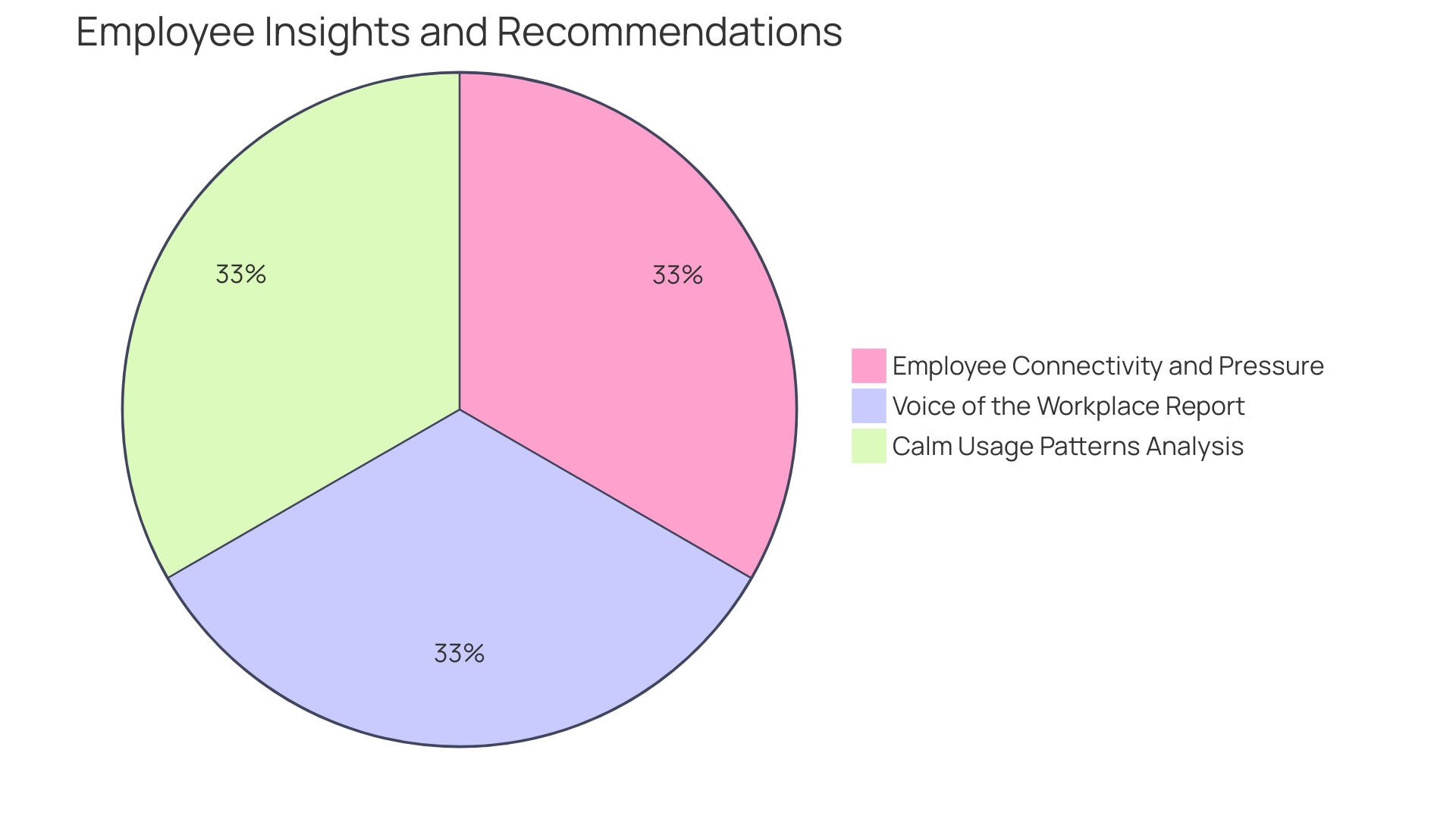
Alyfe Wellbeing Strategies
Alyfe Wellbeing Strategies is dedicated to enhancing the well-being culture within companies. They offer a suite of programs tailored to elevate health and morale in the workplace, including wellness challenges that encourage healthy behaviors, educational workshops that spread awareness and knowledge, and leadership training designed to create a network of support and motivation. These programs are not just about physical health but also about fostering a sense of community and belonging among employees.
For instance, consider Spindogs' approach post-pandemic, where they sought to reconnect their team, recognizing the connection between communication and a thriving creative, productive environment. They implemented a Wellbeing Program that was accessible to everyone within the organization, respecting both in-person and remote needs, demonstrating the flexibility and comprehensive nature that well-being strategies require.
In a similar vein, the corporate structure of Nutri-H in Peru shows how wellness initiatives can be both a business model and a social good. By repurposing food industry waste, they address iron deficiency anemia in rural communities, highlighting the potential for wellness companies to have a far-reaching impact on health equity and sustainability.
Furthermore, organizations are increasingly recognizing the importance of well-being in the workplace, as shown by HCI initiatives and discussions at conferences like CHI 2024. The focus is on redesigning workplaces to prioritize the well-being of employees through holistic, human-centered technologies and policies.
Statistics underline the burgeoning demand for wellness, with a steady growth rate of 5% to 10% annually in the U.S. for wellness products and services. This is driven by a consumer base, especially among Gen Z and millennials, that is more informed and demands scientific validation for wellness claims.
Quotes from industry experts emphasize the significance of workplace well-being, noting that a culture of happiness and support can lead to a 20% performance advantage over competitors and is deemed critical to company success by 70% of executives.
These perspectives are supported by WHO standards, which outline four pillars of well-being at work. Emotional and financial well-being are among them, indicating their ties to employee productivity and satisfaction. Well-being leadership, through comprehensive training, plays a pivotal role in fostering a supportive environment, particularly in industries like hospitality where the nature of the work can challenge employee wellbeing.
B.Komplete
At B.Komplete, they craft wellness programs that resonate with the unique culture of each organization they serve. Their holistic approach encompasses nutrition guidance, interactive culinary workshops, dynamic fitness sessions, and enlightening wellness seminars—all designed to foster a thriving workplace. By prioritizing the multifaceted aspects of health, from physical to mental well-being, B. Komplete empowers employees to achieve balance and vitality in their daily lives.
This comprehensive strategy not only enhances individual wellness but also fuels productivity and engagement across the entire company, underscoring the profound impact that well-structured wellness initiatives can have on an organization's success.
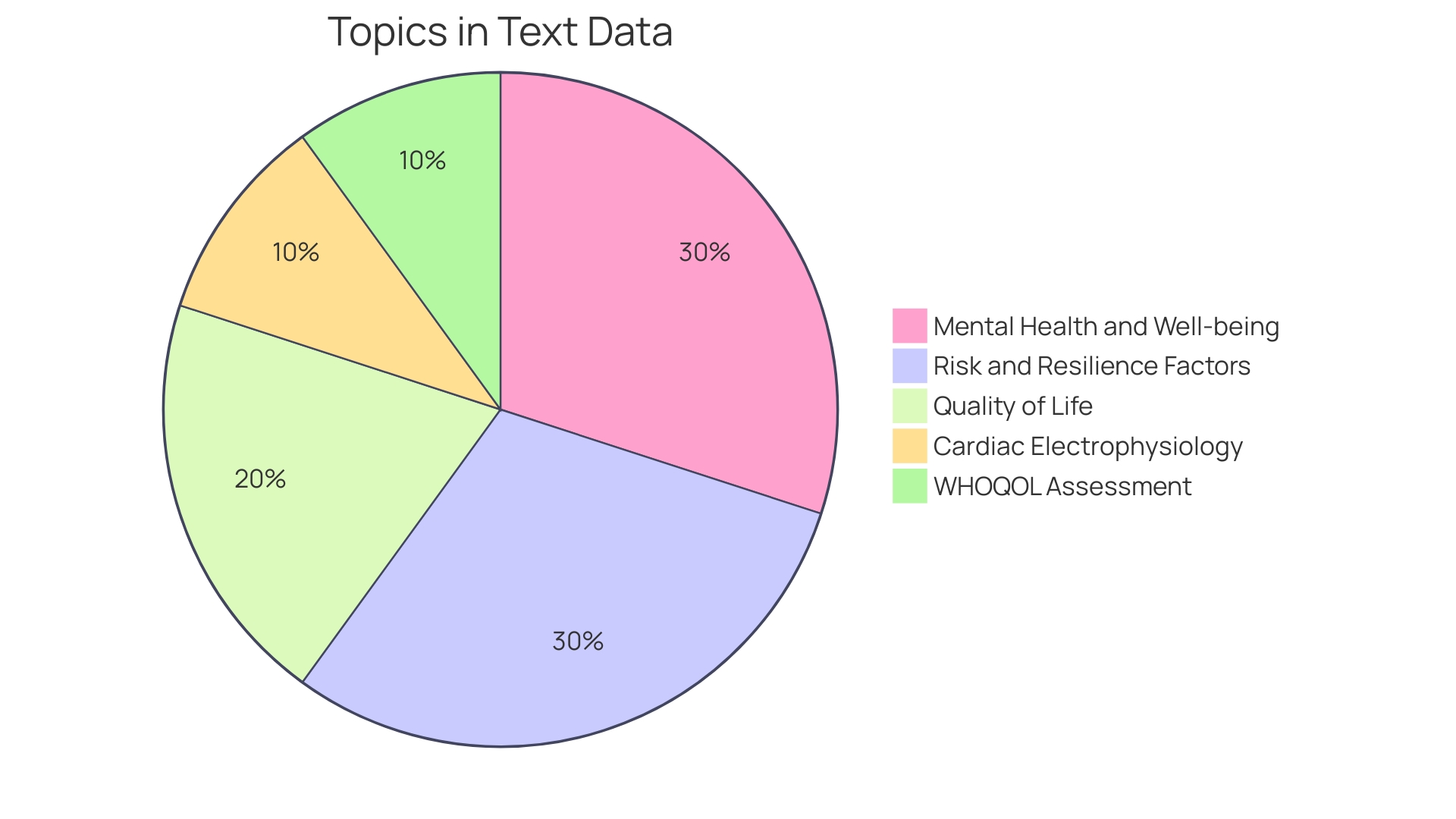
WellAdvantage
At the forefront of workplace wellness technology, WellAdvantage is revolutionizing employee health and engagement. Their innovative platform seamlessly melds with current HR infrastructures, offering a suite of personalized wellness solutions. Employees benefit from tailored wellness advice, virtual coaching sessions, and interactive, gamified challenges designed to foster a culture of health and vitality.
Real-world feedback underscores the impact of such wellness initiatives; employees have reported significant reductions in chronic discomfort and immediate enhancements in work routines. As the workforce evolves with a rise in diversity and a shift to flexible work paradigms, the need for comprehensive well-being strategies is paramount. WellAdvantage's approach not only aligns with these contemporary dynamics but also resonates with the sentiments of a workforce in pursuit of better health outcomes.
This alignment is critical in an era where employee engagement—a measure of motivation, participation, and commitment—is directly tied to a business's success and its customers' satisfaction. By investing in the well-being of employees, companies can unlock a wealth of benefits, as healthy employees are the linchpin to economic growth and improved global productivity.
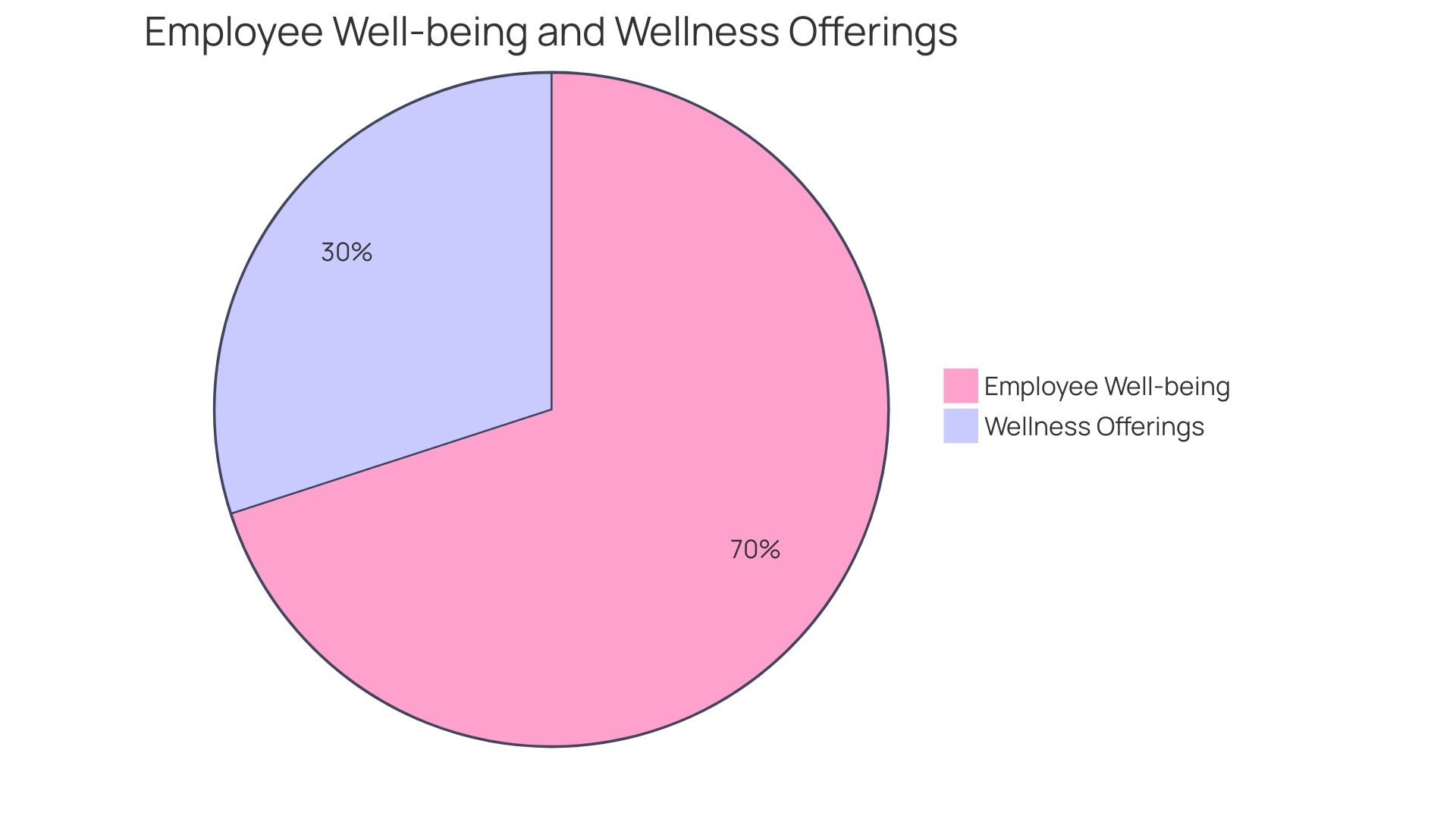
Features to Look for in Corporate Wellness Vendors
Choosing the right corporate wellness partner is crucial for fostering a healthier workforce. A comprehensive range of wellness services is essential. Look for programs that are not one-size-fits-all but are customizable to address unique employee needs.
For instance, Wellmark collaborated with its staff to identify what 'wellness' meant for them, recognizing that it varies from person to person. Data analytics is another cornerstone, providing insights into program effectiveness and areas for improvement.
User-friendly technology platforms are indispensable for engagement and ease of use. As the corporate wellness industry evolves, companies like Carvalho have expanded from physical fitness to mental health, nutrition, and sleep, offering holistic support.
A proven track record of success in improving employee health and well-being is also a key consideration. As pointed out by the London School of Economics and Political Science, prioritizing employee well-being not only boosts productivity but also strengthens employee retention and attracts new talent. In fact, 60% of employees consider wellness benefits a top priority for their next job.
Additionally, the McKinsey Health Institute advocates for an integrated view of health that includes mental, physical, spiritual, and social aspects, encouraging employers to support these dimensions. With most adults spending a significant portion of their lives at work, employers have a unique opportunity to positively influence their employees' health.
Ultimately, the selection of a wellness vendor should align with the goal of enhancing employee well-being, thereby contributing to the organization's success and creating a competitive edge in the talent market. The right partner can help achieve this by offering a holistic approach, tailored solutions, and measurable results.
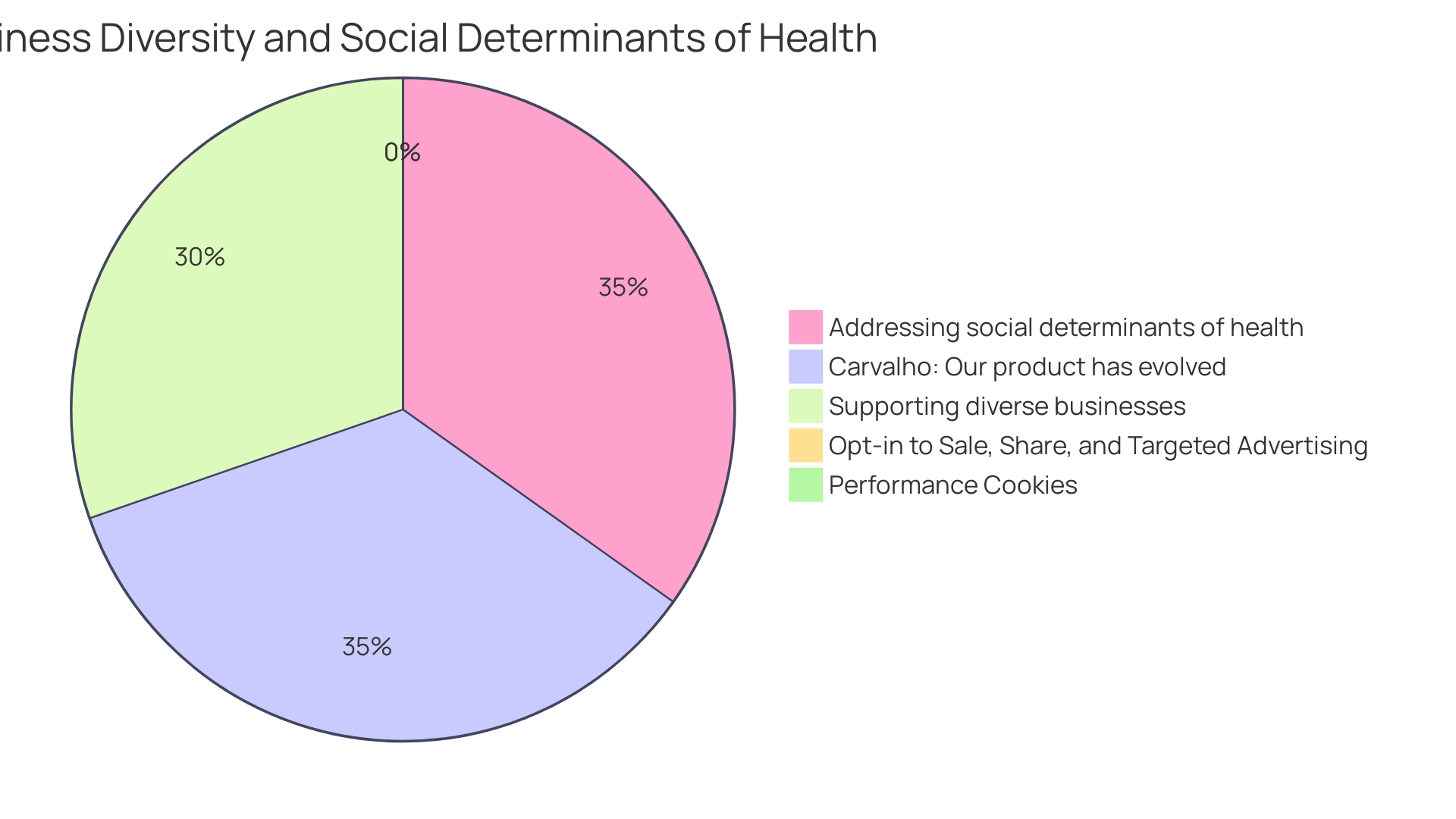
Conclusion
In conclusion, workplace health is now recognized as a critical aspect of business strategy, with organizations investing in employee well-being. This investment yields a significant return on investment, enhancing productivity and reducing expenses. Embracing a culture of well-being involves prioritizing physical, mental, emotional, and social health through open communication.
Effective interventions include opportunities for employees to engage in charity or volunteer work, allowing employers to positively influence their employees' holistic health. A successful corporate wellness program adopts a holistic approach, addressing various aspects of employee well-being through comprehensive health assessments, personalized wellness plans, and access to diverse resources like digital fitness and mental health partnerships.
Technology plays a crucial role in shaping corporate wellness, with wearables, mobile apps, and AI-powered programs enhancing efficacy and engagement. Top corporate wellness companies focus on integrating mental, physical, spiritual, and social dimensions of health.
Wellness companies like Corporate Health Partners (CHP) and Wellsource, Inc. redefine employee health with diverse services. FitMind LLC and ComPsych Corporation prioritize mental resilience. Wellness360, Wellable, Virgin Pulse, Alyfe Wellbeing Strategies, B.Komplete, and WellAdvantage offer comprehensive wellness programs.
When selecting a corporate wellness vendor, consider a comprehensive range of services, customizable programs, data analytics, user-friendly technology platforms, and a proven track record of success.
In conclusion, prioritizing employee well-being is essential for business success. By investing in employee wellness, organizations create a healthier, happier, and more engaged workforce, leading to improved productivity and overall quality of work hours.




